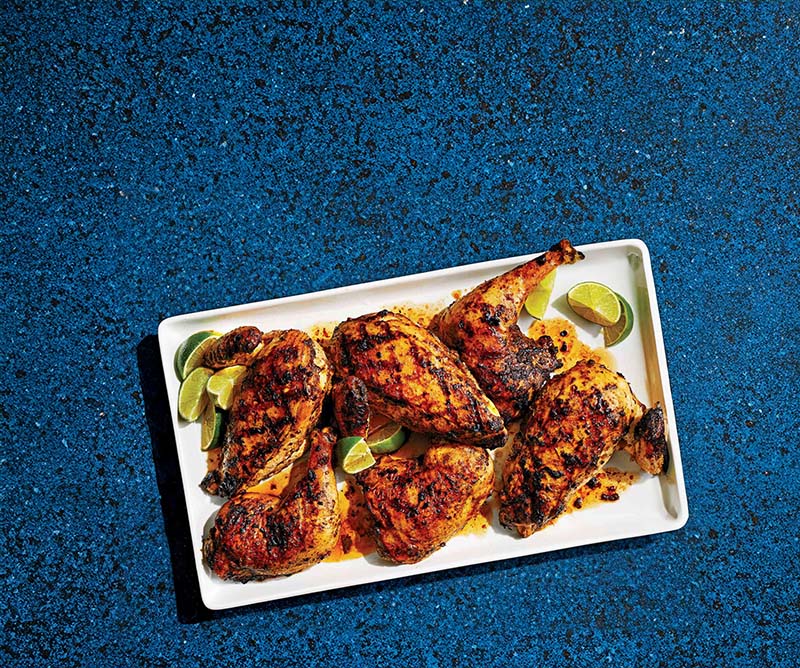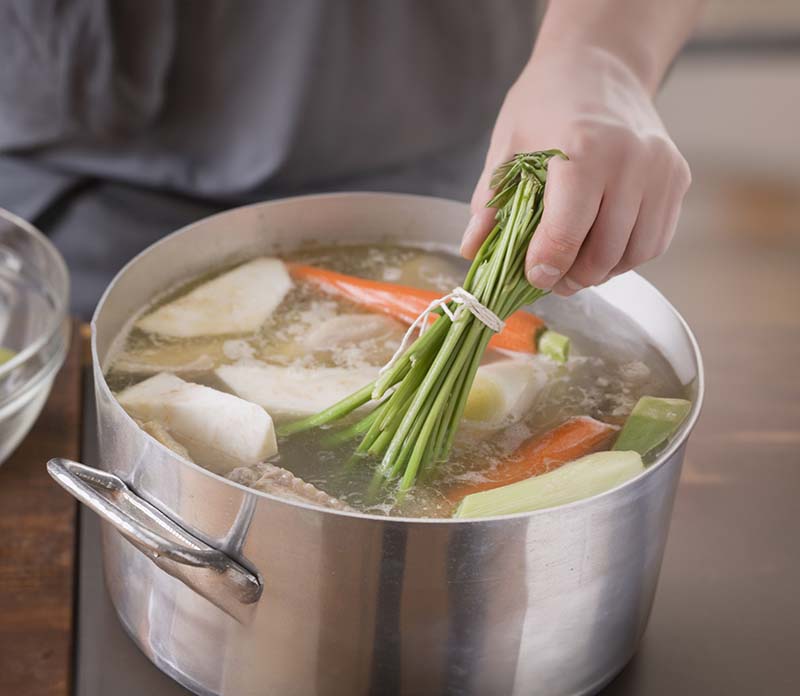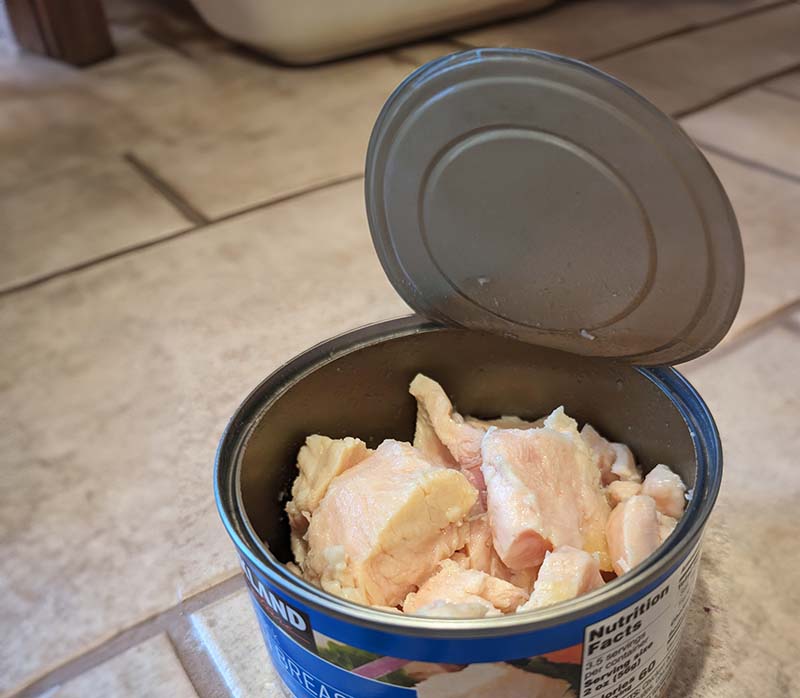Chicken, often asked about in the context of “Is Chicken Good for Weight Loss?”, stands as a global favorite in the culinary world, celebrated for its adaptability across a multitude of recipes and cooking styles.
Whether it’s roasted, grilled, fried, or baked, chicken consistently wins hearts and satisfies even the pickiest eaters. However, its appeal extends far beyond its culinary versatility. Notably, chicken is acclaimed for its substantial health benefits, especially in the realm of weight management and weight loss.
Related articles
- Is Chicken Good for Weight Loss? Discover Nutritional Facts.
- Is Cottage Cheese Good for Losing Weight? Secrets Revealed!.
- Are Green Beans Good for Weight Loss? Key Insights.
1. Is Chicken Good for Weight Loss?
Chicken is good for weight loss because it’s high in protein but low in calories. Protein helps you feel full, cuts down on hunger, and even speeds up your metabolism. Chicken also gives you important vitamins and minerals, which are good for your overall health. But, it’s better to avoid fried chicken or chicken that’s been heavily processed, as these can contain a lot of calories and unhealthy fats.
Instead, people should choose alternative natural, organic chicken and cook it in healthier ways like grilling or baking. Adding chicken to your diet, along with regular exercise and keeping a balanced diet in your protein intake, can really help with weight loss and maintain your physical health.

2. Nutritional Facts of Chicken
Chicken is not only low in calories and carbohydrates but also a powerhouse of protein, making it an ideal choice for those aiming to lose weight. Beyond its protein content, chicken is packed with several vital nutrients. It’s an excellent source of essential minerals like phosphorus, which is important for healthy bones and teeth, and potassium, crucial for heart health. Chicken also provides a good amount of zinc and selenium, both essential for a strong immune system.
Additionally, chicken is rich in B vitamins like niacin and folate. Niacin is necessary for the body’s energy production and maintaining healthy cells, while folate plays a key role in cell division and metabolism. However, it’s important to note that chicken does contain cholesterol. People with high cholesterol levels should keep this in mind and consume it moderately.

Here’s a breakdown of the nutritional content in 100 grams of raw, skinless chicken, as provided by the USDA:
- Calories: 120 kcal
- Protein: 21.5 g
- Carbohydrates: 0 g
- Fat: 3.1 g
- Fiber: 0 g
- Phosphorus: 178 mg
- Potassium: 522 mg
- Sodium: 77 mg
- Zinc: 1.47 mg
- Niacin: 5.58 mg
- Cholesterol: 86 mg
- Selenium: 10.2 µg
- Folate: 85 µg
* µg: microgram; mg: miligram
3. Chicken: A Superfood for Weight Loss?
Chicken is frequently suggested for those on a weight loss journey, and for good reasons:
Abundant in Protein
Research highlights chicken’s role in weight loss, primarily due to its high protein content. A 100-gram serving of raw chicken packs a substantial 21.5 grams of protein. This high protein level aids in creating a feeling of fullness, boosts metabolism, and supports recovery after workouts. Studies have shown that a higher protein intake can lead to weight loss and help maintain lean muscle mass. Furthermore, when combined with strength and resistance training, protein from chicken contributes to muscle growth, increasing the body’s resting calorie burn. This aspect positions chicken as a key element in a strength-building diet.
Low Fat and Cholesterol Levels
Compared to red meat, chicken has lower levels of saturated fat and cholesterol, making it a healthier choice. However, it’s important to select organic and natural chicken to avoid unwanted chemicals and additives.
Calorie-Efficient
Chicken’s effectiveness in weight loss is also attributed to its low-calorie profile. Studies emphasize the importance of maintaining a calorie deficit for weight loss, meaning burning more calories than the number consumed.
With only 120 kcal in 100 grams of raw skinless chicken, it’s an optimal choice for those aiming to get thinner. Its low calorie yet nutrient-rich composition makes chicken a smart pick for weight watchers, contributing to bone strength, reduced appetite, and muscle building.
4. Additional Weight Loss Benefits of Chicken
Beyond its low-calorie and high-protein benefits, chicken offers other advantages for dieters. Stress is known to contribute to weight gain through overeating and rare physical activities.
Chicken, rich in nutrients like selenium, niacin, and phosphorus, can help manage premenstrual symptoms and reduce stress, thereby aiding in weight management and enhancing overall physical health.
A well-rounded diet that includes chicken, particularly post-workout meals, supports muscle building and weight loss when combined with regular exercise and a balanced intake of amino acids, vitamins, and minerals.
5. Drawbacks of Chicken for Weight Loss
While an all-chicken diet might seem like a fast track to weight loss, it still comes with some certain drawbacks.
Potential Nutrient Deficiencies
Relying solely on chicken for your dietary needs can lead to nutrient deficiencies. Chicken, although a good source of vitamin B6, phosphorus, protein, niacin, and selenium, lacks other essential nutrients like vitamin C and folate.
A varied diet is critical for obtaining all necessary nutrients, and sticking to a mono diet like the chicken diet increases the risk of deficiencies. If you’re considering this diet, it might be wise to take a daily multivitamin to counteract potential deficiencies.
Adoption of Unhealthy Eating Habits
An all-chicken diet can also pave the way for unhealthy eating habits. Excluding whole food groups can have lasting psychological effects, potentially leading to feelings of guilt or anxiety when reintroducing other foods.
These symptoms are indicative of disordered eating, which encompasses irregular eating behaviors that may evolve into eating disorders. To foster a healthy relationship with food, it’s advisable to avoid highly restrictive diets like the chicken diet and instead opt for a well-balanced dietary approach.

Unsustainability and Restriction
The monotony of the chicken diet makes it unsustainable and dull for many. Despite the numerous ways to season chicken, the lack of variety can lead to diet fatigue.
This highly restrictive diet also omits essential nutrients found in vegetables, fruits, other proteins, and healthy fats. While not intended for long-term adherence, many find it challenging to stick to even for short periods.
Increased Consumption of Fried Foods
While many choose to bake or grill chicken on this diet, others might opt for frying. While occasional fried foods in a nutritious diet might be harmless, regular consumption of fried foods is linked to health risks like heart disease and cancer.
If you do follow a chicken-focused diet, it’s better to choose healthier cooking methods such as broiling or baking.
6. Can You Eat Chicken Every Day?
While considering chicken as a daily staple in your diet, it’s important to understand how it fits into a balanced eating plan.
Unlike red meat, which is recommended to be limited to around 70g per day, white meat like chicken doesn’t have a specific daily consumption limit according to current guidelines. This means you can enjoy chicken daily, especially if it’s part of a varied diet that includes plenty of plant-based foods.
However, it’s crucial to remember that relying solely on chicken as your protein source might lead to missing out on other important nutrients. Rather than fully relying on chicken meat, Modi Mwatsama – director of global health at the UK Health Forum advised people to switch to other sources of protein. Red meat, for instance, is a richer source of iron, while seafood such as salmon and tuna are packed with healthy fats and essential omega-3 fatty acids.

7. Is Chicken Broth Good for Weight Loss?
Chicken broth is often considered a useful addition to diets that focus on drinking chicken broth for weight loss due to its low calorie content. A typical cup of chicken broth contains about 40-60 calories, varying with the recipe and ingredients. Substituting higher-calorie meals with chicken broth can lead to a calorie deficit, a key factor in weight loss. However, relying solely on chicken broth for an extended period isn’t advisable. Such a restricted diet lacks essential nutrients and can cause nutrient deficiencies and other health issues.
To effectively include chicken broth in your diet, it’s best to use it as part of a well-rounded eating plan, paired with regular exercise and overall healthy living. Chicken broth can also be a component in various nutritious recipes, like chicken soup or chicken salad, offering meals that are both low in calories and rich in nutrients.

8. Is Baked Chicken Good for Weight Loss?
Baked chicken, especially chicken breasts, is invaluable to those hoping to lose weight. Chicken breasts are lean and high in protein, making them ideal for a weight loss diet. To make a tasty yet healthy meal, season your chicken breasts with olive oil, a pinch of salt, and your favorite spices, then bake them in the oven. This cooking method keeps the calorie count low while providing a good protein boost.
However, it’s best to stay away from fried and heavily processed chicken, as these are often loaded with extra calories and unhealthy fats. For effective weight loss and overall health, include baked chicken as part of a balanced diet. Combine this with regular physical activity and a well-rounded intake of proteins from various sources.

9. Is Canned Chicken Good for Weight Loss?
Canned chicken offers a quick and easy way to get high-quality protein into your diet. This kind of protein can help you feel full, support weight loss, increase your metabolism, and help your body burn fat more effectively. Canned chicken also provides essential nutrients like niacin, selenium, zinc, and vitamin B6.
When choosing canned chicken, it’s important to pick options with lower sodium to prevent water retention and bloating. Also, check the labels for added ingredients. Look for brands that prioritize quality, such as those using white meat or chicken breast, to ensure you’re getting the most nutritional value.
While canned chicken is a convenient and healthy protein source, remember to include a variety of other nutrient-rich foods in your diet for overall balance and health.

10. Is Fried Chicken Good for Weight Loss?
Fried chicken might not be the best choice if you’re trying to lose weight. It’s high in calories, carbs, and unhealthy fats, which can contribute to weight gain and raise your cholesterol levels.
High cholesterol is a risk factor for heart disease. Healthier cooking methods like baking, grilling, or poaching are better options than frying.

Conclusion
“Is Chicken Good for Weight Loss?” you might wonder. Reflecting on the various facets of chicken as a dietary choice, it’s clear that it holds potential benefits for weight loss when consumed mindfully and prepared healthily. Exploring its lean protein content and versatility, chicken can be a superb addition to your diet.
We invite you to consider how chicken can enhance your personal health goals. We’re eager to hear your unique experiences and insights on incorporating chicken into your weight loss plans. Share your stories, and for more empowering health wisdom, be sure to browse through the abundant resources available at HealthConnect. Your journey to well-being is one we value deeply.

Dr. Joyce Slater: Your Guide to Informed Health Choices
Dr. Joyce Slater shines as a distinguished expert in the field of nutrition and public health. Contributing her vast expertise to HealthConnectbc, she embodies a deep-seated passion for enhancing public well-being. As a respected figure in her field. Dr. Slater’s academic journey and professional achievements are nothing short of inspirational.
Holding a significant position as a researcher and educator, Dr. Slater has delved deeply into the intricacies of food literacy and nutritional science. Her work, prominently featured in numerous esteemed scientific publications, underscores her dedication to expanding our understanding of food’s role in health and society.
At the heart of Dr. Slater’s professional ethos is a profound desire to positively impact individual lives through education and research. She often says, “Empowering people with the knowledge to make healthier choices is the most rewarding aspect of my work.” This principle is the cornerstone of her involvement with HealthConnectbc, where she strives to provide reliable and practical health advice.
Dr. Slater’s contributions to HealthConnectbc are multifaceted: academically, she offers insights into the complex world of nutrition and health, enhancing both public understanding and professional practices. Additionally, she is instrumental in guiding and inspiring the next generation of health professionals, thus fostering future excellence in the field.
Juggling rigorous research with her educational duties, Dr. Slater demonstrates an unwavering commitment to her profession. Her approachable nature and genuine concern transcend the confines of academia, touching the lives of everyone she interacts with. Dr. Slater looks forward to continuing her journey of discovery and education, dedicated to the ongoing improvement of public health and nutrition.
At HealthConnectbc, Dr. J. Slater is not just a contributor; she is a guiding light, dedicated to enlightening and motivating individuals towards a healthier and more informed lifestyle.
PUBLISHED ARTICLES
- Food literacy competencies: A conceptual framework for youth transitioning to adulthood (2018)
- Self-perceived eating habits and food skills of Canadians (2016)
- Challenges to acquiring and utilizing food literacy: Perceptions of young Canadian adults (2016)
- Socio-demographic and geographic analysis of overweight and obesity in Canadian adults (2009)
- Sustainable well-being: Concepts, issues, and educational practices (2014)


